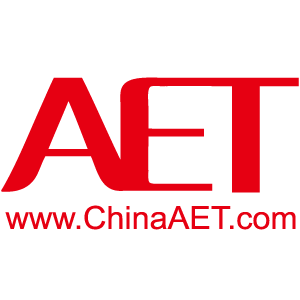数字经济下平台数据垄断合规的理据与路径
网络安全与数据治理
陈镜霖
西南民族大学法学院
摘要: 数据要素的非竞争性、非排他性因平台垄断意图逐渐异化,并诱发算法共谋、大数据杀熟、平台扼杀式并购等反竞争行为。基于维护数据市场交易秩序的现实需要、竞争倡导理论的法理支撑以及域外数据合规监管的经验参考,平台数据垄断合规具有适用的可行性与必要性。然而,平台数据垄断合规往往因顶层规范缺失、规则模糊以及监管机制弱化等无法实现预期效果。对此,应细化“数据反垄断合规指南”的设计逻辑指引合规,区分不同类型数据权属以明确数据流通规则,依据数据流通的不同环节形塑数据竞争合规评价标准,衔接事前监管与事后监管理念促进监管理念革新,并依托人工智能算法技术赋能监管方式转型。
中图分类号:D922.294;D922.1文献标识码:ADOI:10.19358/j.issn.2097-1788.2024.07.010
引用格式:陈镜霖.数字经济下平台数据垄断合规的理据与路径[J].网络安全与数据治理,2024,43(7):61-68.
引用格式:陈镜霖.数字经济下平台数据垄断合规的理据与路径[J].网络安全与数据治理,2024,43(7):61-68.
The rationale and path of platform data monopoly compliance under the digital economy
Chen Jinglin
Law School, Southwest Minzu University
Abstract: The noncompetitive and non-exclusive nature of data elements is gradually alienated by the platform′s monopoly intention, and induces anti-competitive behaviours such as algorithmic conspiracy, big data kills maturity, and platform strangulation mergers and acquisitions. Based on the practical need to maintain the order of data market transactions, the jurisprudential support of competition advocacy theory, and the empirical reference of extraterritorial data compliance regulation, the platform data monopoly compliance has the feasibility and necessity of application. However, data monopoly compliance often fails to achieve the expected results due to the lack of top-level norms, vague rules and weak regulatory mechanisms. In this regard, the design logic of the Data Antitrust Compliance Guidelines should be refined to guide compliance, differentiate the ownership of different types of data in order to clarify the rules of data circulation, shape the evaluation criteria of data competition compliance based on different aspects of data circulation, connect the concepts of ex ante and ex post regulation to promote the innovation of regulatory concepts, and rely on the algorithmic technology of AI to empower the transformation of regulatory methods.
Key words : digital economy; platform data; monopoly compliance; data circulation; data ownership
引言
数字经济时代,数据已成为全球竞争的关键要素。《数字中国发展报告(2022)》显示,2022年我国数字经济规模已超过50万亿元,数字经济占GDP比重达41.5%,位居世界第二位。可见,数据已经具备与其他生产要素相同的关键地位,其不仅与实体经济深度契合,甚至成为我国重要的基础性战略资源。然而,少数超级平台垄断了大量数据资源,借助所谓的“上帝视角”,能够获取精准的市场情报,从而在市场竞争中占据有利地位,实现跨界竞争。超级平台的数据垄断不仅破坏了市场竞争的公平性,还因对数据共享结构的异变与破坏,最终弱化了其公共资源价值的实现。目前,我国学界对于平台利用数据垄断地位可能破坏市场竞争环境,阻碍数据共享,危害消费者权益已形成共识[1]。数据垄断行为对基于工业经济的反垄断法带来基础理论和规制体系的挑战,不同学者从平台义务[2]、监管幅度[3]、监管方式[4]、监管手段[5]等角度分析数据垄断行为的规制。但目前研究呈现“重监管轻合规”的现象。基于此,本文通过对数据垄断危害进行检视,探究数据垄断合规的理论依据和现实困境,并试图从规章制定、数据权属明晰和合规监管三个方面形塑可行的因应对策,以期对促进平台企业数据合规有所裨益。
本文详细内容请下载:
http://www.chinaaet.com/resource/share/2000006093
作者信息:
陈镜霖
(西南民族大学法学院,四川成都610041)

此内容为AET网站原创,未经授权禁止转载。

